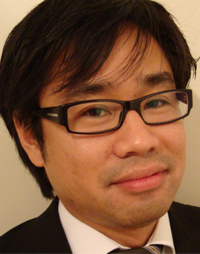So, if you can’t find many German MBA programs in the international rankings yet, where can you go to find out which programs are good?
Try the Foundation for International Business Administration Accreditation (FIBAA), which has been accrediting business programs in German-speaking countries since 2002. We spoke to Daisuke Motoki, head of accreditation procedures at FIBAA, about German MBA programs and how prospective students can use the FIBAA website to inform themselves.
Will some German MBA programs become “household names” internationally, like IMD or INSEAD?
I think so. Some of the schools, like Mannheim, GISMA, and WHU-Kellogg are already strong, internationally-oriented programs. First of all, they are taught completely in English, which is basically a prerequisite to be able to attract international students, as well as an international faculty. International orientation is of course not only of interest to foreigners; many Germans are also very interested and attracted to programs with this strong international focus.
Those are the big players in Germany, which will continue to grow stronger on the international market. It is probably easier to bring this prestige if you’re an older school like WHU or Mannheim. These long-established business schools have a tradition of faculty research and more to show in this area than a relatively new school, and that plays a role in being able to catch up with international programs.
I think that since Bologna, the German university market will be perceived as stronger as before. I expect that will also be the case with really good MBA programs. I think then a big player in Germany could then be a global player.
Have you noticed any trends in Germany MBA programs in the last decade?
As everywhere, there is more being offered in terms of continuing education, either through new programs or specialized programs, or many MBA programs that can be taken alongside jobs. Classic MBA programs, like those in the USA, are usually full-time programs. Of course, there are some of those in Germany, like the WHU-Kellogg executive program, but there are also many more part-time programs that can be taken by people who are working. Students or prospective students don’t want to completely quit their jobs; they want to stay and take a part-time program. I think there will be more of those kinds of programs.
I also think there are new teaching methods being used, like blended learning or more online, distance-learning components, to enable students to participate without necessarily being there.
Those are the things we have observed, along with an MBA with a certain specializations, even though we only accredit programs that have the “General Management” aspect that is defined in the European MBA guidelines.
How can someone who is interested in German MBA programs use the FIBAA website?
Prospective students can see which programs the FIBAA has accredited, and there is information about each program in the form a short report and a quality profile that evaluates programs based on 90 criteria. Ratings on each of these criteria can also be found there. This gives prospective students the ability to see where the strengths and weakness of each program lie, but without an explicit ranking, like the Financial Times, etc.
However FIBAA does identify particularly strong programs with the “FIBAA Premium Seal.” And this seal indicates that the program in general is clearly above the national quality standards. Our survey is organized into five core areas: goals and strategies, admissions procedures, conception of the program, resources and services, and quality assurance.
Is this site often used by people outside of Germany?
FIBAA hasn’t observed that systematically so far, but we are working on it. We know about which statistics and information on our website is most often requested or downloaded, and it’s clear that people are most interested in how specific accredited programs – bachelor, master, MBA – scored in our evaluation. But unfortunately I cannot say what percentage of our users come from abroad. In any case, we have German and English versions, so that the information is accessible to people within Germany and abroad.
